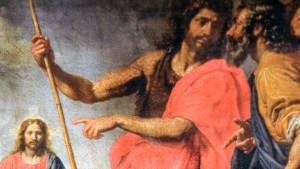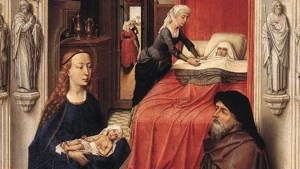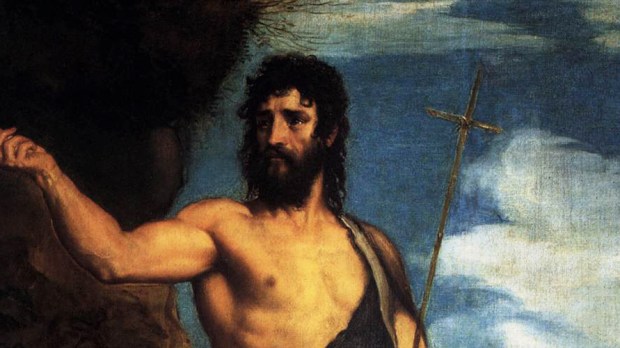Lenten Campaign 2025
This content is free of charge, as are all our articles.
Support us with a donation that is tax-deductible and enable us to continue to reach millions of readers.
It’s interesting to think about the relationship between Jesus and John the Baptist. The Gospels tell us that John was Jesus’ relative and that their mothers were close, and recounts stories from both men’s public ministries. But we don’t know much about the relationship between them.
Did they grow up together? Were they good friends besides being relatives? Since their mothers lived in different places (at least at the start of the Gospel of Luke), it seems likely that they went long stretches of time without seeing each other. Did they ever even meet each other face to face before John baptized Jesus? We don’t know.
What we do know of John, however, gives us much to reflect on and imitate. One comment he made has actually shaped our liturgical calendar and seems to summarize the vocation we’re called to as Christians.
A biblical passage called “Final Witness of the Baptist” makes clear John the Baptist’s role as the last prophet, the last in a long line of holy men foretelling the coming of the Messiah. St. John the Evangelist writes,
After this, Jesus and his disciples went into the region of Judea, where he spent some time with them baptizing. John was also baptizing in Aenon near Salim … So they came to John and said to him, “Rabbi, the one who was with you across the Jordan, to whom you testified, here he is baptizing and everyone is coming to him.” John answered and said, “No one can receive anything except what has been given him from heaven. You yourselves can testify that I said I am not the Messiah, but that I was sent before him. The one who has the bride is the bridegroom; the best man, who stands and listens to him, rejoices greatly at the bridegroom’s voice. So this joy of mine has been made complete. He must increase; I must decrease.” (John 3:22-30)
“He must increase; I must decrease.” These words seem to condense into a simple phrase the transformation that can happen in the soul of a Christian.
Whatever of Christ that is in us must increase: Peacemaking, humility, meekness, charity, and forgiveness must grow in us. Whatever is in us that is not of Christ must decrease: Selfishness, anger, sloth, and pride must be pushed out.
Amazingly, the Church has woven this statement of St. John the Baptist’s into the very fabric of the liturgical year. His feast day falls on June 24, opposite from Christmas on the calendar.
Just as Christmas falls near the winter solstice, St. John’s feast falls near the summer solstice. That means that the days grow shorter after his feast: “I must decrease.” This beautiful design helps us remember his wise words, and strive to imitate them in our own lives.
Traditionally, St. John the Baptist’s feast day, or “Johnmas,” was celebrated to the extent of being like a smaller Christmas, with bonfires, feasting, and revelry. It’s still a solemnity today.
We are now in the part of the year when the days are getting a little longer, bit by bit: “He must increase.” Many theologians and saints have used the sun and its light as a metaphor for Christ and his grace. This month of January, as sunset gets a little later every day, can lead us to seek a comparable growth of light in our souls. The days getting longer seem like a physical reminder of the grace of Christ growing in our souls.
In the dark days of winter, we look forward to springtime with its promise of new life and beauty. This anticipation is a pale imitation of our eagerness for Christ, and the hope He brings us. As the days get longer, and we await spring, we can call to mind the part we are called to play in the “new springtime” of Christianity.
Although we don’t know the full details of St. John the Baptist’s relationship with Jesus, we do know the most important thing about them: John told his disciples to follow Jesus. He wanted Christ’s ministry to eclipse his own.
He is still sharing that message with us today, as these lengthening January days remind us. It’s our choice whether or not to listen.

Read more:
Were Jesus and John the Baptist cousins?

Read more:
The Nativity of John the Baptist and the Church’s quarterly Christmases

